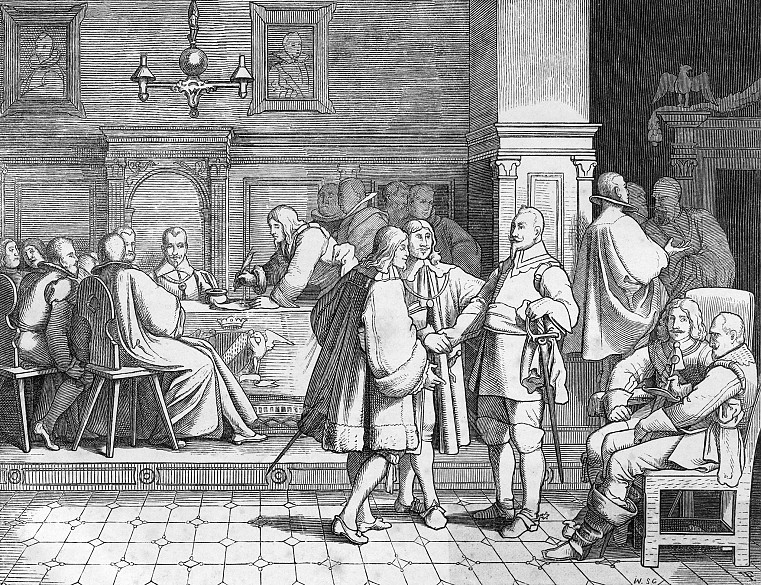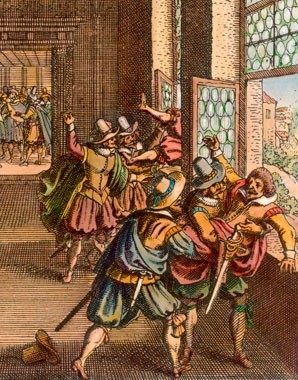Ferdinand III and the desire for peace
By the middle of the 1640s the situation in the Empire was one of stalemate: a military decision was unrealistic, since the imperial forces were only capable at most of defending the status quo. The general desire for peace ran counter to the attempts by all the parties involved to achieve more advantageous starting positions for negotiations by continuing the war.
In the Holy Roman Empire, where the war had originated in the conflict between the emperor and the Protestant princes of the Empire, there was a consensus that continuing the war was pointless. Here Ferdinand was able to draw on the peace of Prague that had been initiated by his father. Originally intended as an agreement between the emperor and the elector of Saxony, it served to formulate an offer of peace from the emperor that was later accepted by most of the imperial Estates. The aim was to achieve agreement between the imperial electors so that hands would be freed for action against external enemies. As a compromise solution the status quo and the religious situation obtaining in the period before 1627 would be restored.
However, the problem was that the Prague agreement only offered suggestions for solutions for internal conflicts within the Empire, and the war had long since become internationalized. France and Sweden allied themselves to the Protestant anti-Habsburg party in the Empire while Spain intervened in the war as the partner of the emperor. Although the Empire was the primary theatre of war and bore the brunt of the armed conflict, a solution was now only possible on a wider European basis.
The circumstances had also altered to the clear disadvantage of the Habsburgs since 1635 when the Peace of Prague had been negotiated. At that time the emperor’s position within the Empire had been relatively strong, whereas by now it was severely weakened. It was obvious that the emperor would have to make concessions in his demands. Ferdinand sent the head of his court household, Count Trauttmansdorff, as the main negotiator to the peace talks in Münster and Osnabrück.
Ferdinand gave the count a secret instruction written in his own hand that if necessary would allow the latter to gradually relinquish principles of imperial policy which had hitherto been regarded as unalterable. This included yielding to the adversaries’ demand that the military alliance with Spain be renounced, a most painful concession for the emperor and one that had so far seemed impossible but without which a peace settlement had no prospect of success.
After the spectacular turn in the negotiations enabled by this concession, the war was finally ended when the Peace of Westphalia was ratified in 1648. Spain remained an important ally of the Austrian Habsburgs, but from then on each state pursued more independent interests. The Habsburg dynasty was no longer a single entity.
Another consequence that was to have huge significance in terms of future foreign policy was the incipient rise of France to become the leading power in continental Europe.













